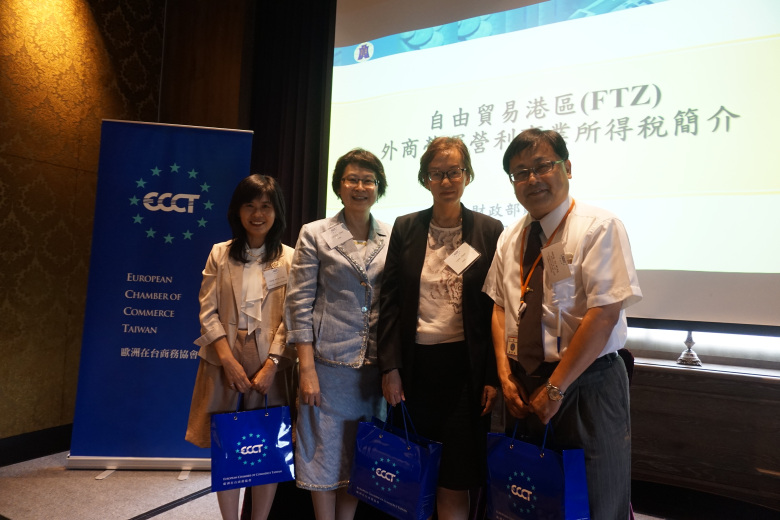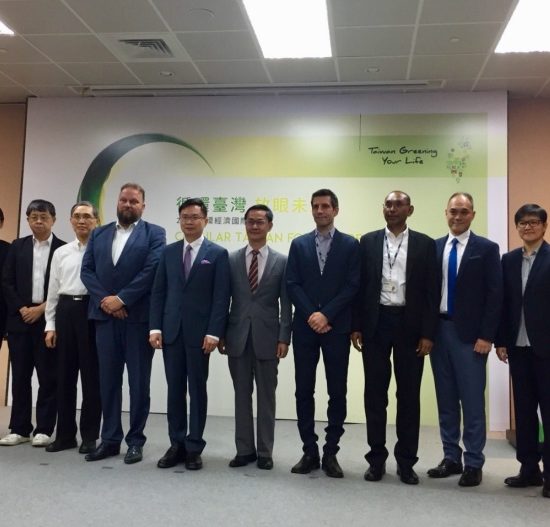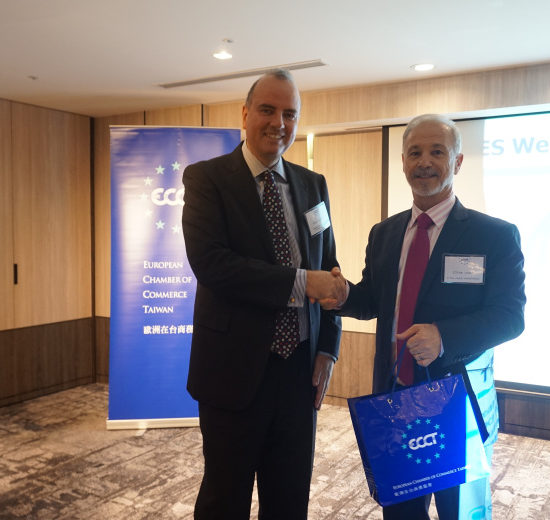New tax benefits for logistics businesses

The ECCT's Tax committee hosted a lunch on the topic "New tax treatment on logistics operating models and Free Trade Zones in Taiwan" featuring the following speakers: Sung Hsiu-ling, Deputy Director-General, Taxation Administration, Ministry of Finance (MOF); Wang Yu-ming, Section Chief, Department of Navigation and Aviation, Ministry of Transportation and Communications (MOTC) and Lynn Chen, Tax Partner, KPMG.
In his presentation Section Chief Wang Yu-ming gave an overview of the benefits of operating in one of Taiwan’s seven Free Trade Zones (FTZs). FTZs are open to 19 different kinds of commercial activities including trading, warehousing, logistics, distribution, re-exporting, transhipments, contract transportation, customs clearance services, assembly, reorganization, packaging, repair, processing, manufacturing, inspection, testing, exhibition and technical services. All operators in FTZs are exempt from normal domestic customs procedures. Wang went on to give some examples of various types of operators and the benefits they enjoy by operating in FTZs.
In her presentation Director-General Sung Hsiu-ling gave a summary of a recent tax ruling as well as the tax benefits available to logistics businesses operating both in as well as outside Free Trade Zones. The Ministry of Finance (MOF) issued a tax ruling in April 2018 that aims to simplify existing procedures and to provide more rationale for determining the Taiwan-sourced income of foreign companies which conduct importation, storage, processing and transportation of goods manufactured by themselves or through purchases abroad which are then shipped to domestic and foreign customers. The new tax ruling provides guidance on how to calculate tax costs and, to a certain extent, reduce the tax burden.
The new tax treatment represents major tax savings in the form of a reduction in the contribution rate from 12% to 3% and, for common models involving manufacturing or processing activities, the onshore purchase costs of parts and raw materials are excluded from the new formula.
The new ruling also provides clearer guidance on models that are eligible for simplified calculation and gives more certainty. It is applicable to all sectors and will improve tax efficiency and compliance costs for foreign investors operating common models. Moreover, the new model incorporates the concept of the value chain into tax rules. There are various formulas for calculating tax based on what functions are performed in Taiwan but the tax the authorities are open to requests to seek clarification on other specific models not covered in the new tax ruling.
When seeking clarification on the Lynn Chen advised companies to prepare and present a complete set of documents to the Tax Administration as well as a clear overview of their business model explaining how the activities carried out in Taiwan contribute to the overall global value chain. Substantiation on the reasonableness of Taiwan’s contribution (the percentage) needs to be well prepared. Transfer pricing documentation is important to substantiate claims of what constitutes a reasonable contribution rate. This would be helped by providing functional analysis to identify the value creation in the value chain while benchmarking analysis would help to justify a reasonable contribution rate. Finally, she recommended maintaining good and open communication with the tax authority during the process to avoid misunderstanding.
In her presentation Director-General Sung also gave an overview of new tax benefits of operating in Taiwan’s Free Trade Zones (FTZs). Tax amendments have been drafted in line with international standards aimed at making Taiwan more attractive to multinational companies, especially those engaged in logistics operations in the Asia-Pacific region, given Taiwan’s ideal geographic location for gaining access to China, Japan and multiple countries in South-East Asia. Under the amendments, for storage and processing goods intended for sales overseas or to other parties in the FTZs there is zero tax. Companies can set up their own operations in FTZs or outsource business to parties already operating in FTZs. This applies to all companies operating in FTZs, regardless of whether or not they are from countries that have tax treaties with Taiwan or not.


